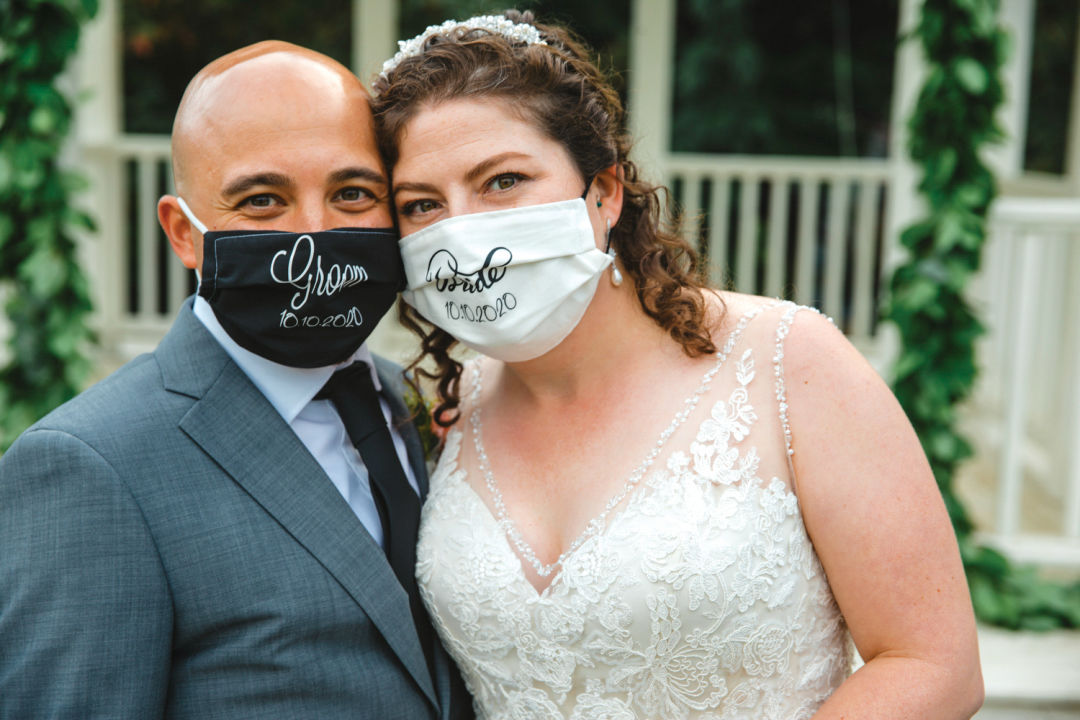It's Almost Summer Wedding Season—but Oregon's Not Making Planning Easy

Marriage in the time of COVID.
Image: Courtesy of Holland Studios
By mid-March, Portland wedding coordinator Elisabeth Kramer had 28 possible leads for 2021 weddings.
Nearly half, she says, plan to invite more than 100 guests.
“The thing about a guest count—even one of fewer than 100 guests—is you have to ask, ‘Where are these guests coming from?’” Kramer says.
Since last spring, in the absence of the kind of industry-specific guidance provided in neighboring Washington and California, Kramer has been piecing together crucial information about what types of weddings are legal in Oregon amid COVID.
More guidance is expected as the summer wedding season approaches. And new guidelines on removing your mask if you are fully vaccinated are changing the calculations, as are expanded capacity limits for venues as vaccination rates rise across the state. But this spring's relative silence from the governor’s office and the Oregon Health Authority has left vendors and couples sorting things out on their own based on ever-changing county risk levels and guidelines for indoor and outdoor venues—all of which dictates how many guests can be invited.
As a result, some vendors are waiting out this wedding season until they feel truly safe celebrating.
“As much as I want to get back to what I did before, the thought of a 200-person, sweaty, hot room is not really appealing at the moment,” says Seattle-based DJ Kyle Stevens, who works weddings all over the Northwest.
And vendors say some of their clients feel the same way. Stevens says he’s spoken with couples who planned large weddings in 2020, pushed them back to 2021, and are punting once again so they can have the large celebrations they had previously planned.
It’s hard to calculate precisely just how much money wedding vendors lost last year, says Josh Lehner, an economist at the state’s Office of Economic Analysis, because weddings cross so many different sectors, including apparel, venues, catering, and travel.
But he says the number of jobs in many wedding-adjacent industries plummeted between January 2020 and January 2021, from a 20 percent drop in the “personal services” category, which covers stylists and makeup artists, to a 53 percent drop in the “arts, entertainment and recreation” sector, which includes country clubs and music venues.
“I think it’s clear that the type of things most weddings need have been parts of the economy that have been hammered,” Lehner says.
Lost income is far from vendors’ only concern.
Photographer Frances Davis, who co-owns Hastain Davis Studios and frequently shot destination weddings pre-pandemic, says she’s looking forward to a resurgence in larger weddings, but not yet. She’s engaged to her business partner, Greg Hastain, and says they are waiting to get married themselves, until they can have a big celebration with their extended family. In the meantime, their focus has shifted to commercial photography.
Still, some vendors think that trend for smaller weddings might continue long after the pandemic is over.
“At a certain point the budget that it takes to pull off the Pinterest wedding is really high,” says Nicole Herinckx, a wedding coach and coordinator who also organized a virtual wedding conference called WeddingFestPDX last year.
She says some of her clients found that as they pared down their guest list, they had the budget to upgrade the party—upgrading the food offerings or offering a full bar rather than just beer and wine, for example—and to pay a videographer to livestream the event for those who can’t attend.
Apart from the practical benefits, Kramer says she’s always encouraged couples to list and focus on the aspects of throwing a wedding that are most important to them, rather than getting bogged down in familial or societal expectations that can cause guest lists and budgets to swell.
“It’s an interesting time in the wedding industry because in some ways I feel like the changes COVID has brought to the wedding industry have been long overdue,” Kramer says. “It’s helped couples prioritize what they want to do on their wedding day.”




